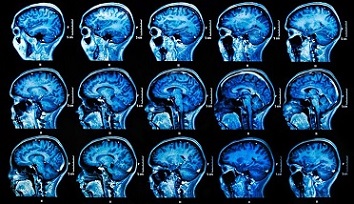Medical News: Columbia University Study Shockingly Finds That Herpes Simplex 2 Infections Causes Brain Shrinkage And Increases Risk For Alzheimer's Disease!
Nikhil Prasad Fact checked by:Thailand Medical News Team Nov 22, 2023 1 year, 4 months, 3 weeks, 6 hours, 13 minutes ago
Medical News: In a groundbreaking revelation that could reshape our understanding of cognitive health, a recent study conducted by Columbia University in New York has uncovered a concerning association between genital herpes (HSV-2) and accelerated brain shrinkage. The implications of this discovery extend beyond the immediate health concerns associated with herpes, potentially linking the virus to cognitive decline and even Alzheimer's disease.

Led by Dr Jose Gutierrez, who is the Florence Irving Associate Professor of Neurology at Columbia University Irving Medical Center, the study covered in this
Medical News report, delved into the MRI brain scans and blood test results of 455 adults, with an average age of 70, who participated in a long-term health-tracking study in Manhattan. The focus was on those who tested positive for HSV-2, the sexually transmitted infection responsible for genital herpes. The results were alarming….individuals with HSV-2 exhibited a consistent pattern of reduced thickness in the cerebral cortex, the brain's outermost layer responsible for critical functions such as memory, perception, and language.
Even after adjusting for variables like education and smoking, the correlation between HSV-2 infection and cortical thinning persisted. Dr Bryce Vissel from St Vincent’s Hospital in Sydney emphasized the gravity of these findings, stating, "Thinning of the cortex is not what you want to see, as it’s generally the beginning of cognitive decline and increases the risk of Alzheimer’s disease."
While the study does not definitively establish HSV-2 as a direct cause of brain degeneration, it aligns with and reinforces previous research findings. Within the same Manhattan study group, individuals with HSV-2 and several other viruses performed poorly in cognitive tests, indicating a potential link between viral infections and cognitive impairment. Furthermore, various members of the herpes virus family, including HSV-1 (causing cold sores) and varicella-zoster virus (causing chickenpox and shingles), have been previously associated with an increased risk of Alzheimer's disease.
The potential connection between herpes viruses and cognitive decline lies in their ability to infiltrate nerves connected to the brain, persisting for a person's entire lifetime. Dr Vissel suggests that an increasing proportion of the scientific community is now open to the idea that some forms of dementia may be related to infections, particularly herpes.
However, the implications of this research stretch far beyond the academic realm, raising concerns about the global impact of HSV-2. With more than half a billion people worldwide currently affected by this sexually transmitted infection and the numbers continuing to rise, the study's findings become increasingly worrisome.
https://www.who.int/news/item/01-05-2020-massive-proportion-world-population-living-with-herpes-infection
In 2016 alone, an estimated 491.5 million people were living with HSV-2, equivalent to 13.2% of the world's population aged 15–49 y
ears. Notably, differing patterns were observed by age, sex, and geographical region, with HSV-2 prevalence highest among women and in the WHO African Region.
The urgency of addressing this issue is further underscored by the potential consequences of accelerated brain aging. If further research confirms the link between HSV-2 and cognitive decline, the global healthcare landscape may need to pivot towards preventative measures. Dr Vissel proposes that vaccines designed to prevent herpes viruses, including the promising mRNA vaccine developed by BioNTech that entered clinical trials in late 2022, could emerge as crucial tools in protecting brain health.
Similar to the shingles vaccine, which has shown a capacity to lower dementia risk, an HSV-2 vaccine might hold the key to mitigating the threat of cognitive decline associated with the virus. The HSV-2 vaccine by BioNTech is currently the frontrunner in development, but conclusive results are still pending.
As the scientific community grapples with the potential implications of these findings, the urgent need for continued research and the development of preventive measures becomes evident. The prospect of safeguarding brain health by addressing the link between HSV-2 and cognitive decline underscores the importance of public awareness and the pursuit of innovative medical solutions in the face of this unexpected and alarming revelation.
Public health initiatives, awareness campaigns, and global collaboration in research and vaccine development are crucial to tackling the multifaceted challenge posed by HSV-2. The unexpected connection between a common sexually transmitted infection and the health of our brains highlights the intricate interplay between infectious diseases and neurological well-being. The journey ahead involves not only unraveling the mysteries of this connection but also mobilizing resources to protect millions worldwide from the potential consequences of HSV-2 on cognitive health. The urgency is clear, and the call to action resounds - our collective well-being depends on addressing this hidden threat head-on.
The study findings were published in the peer reviewed Journal of The Neurological Sciences.
https://www.jns-journal.com/article/S0022-510X(23)00317-9/fulltext
For the latest
Medical News, keep on logging to Thailand Medical News.
